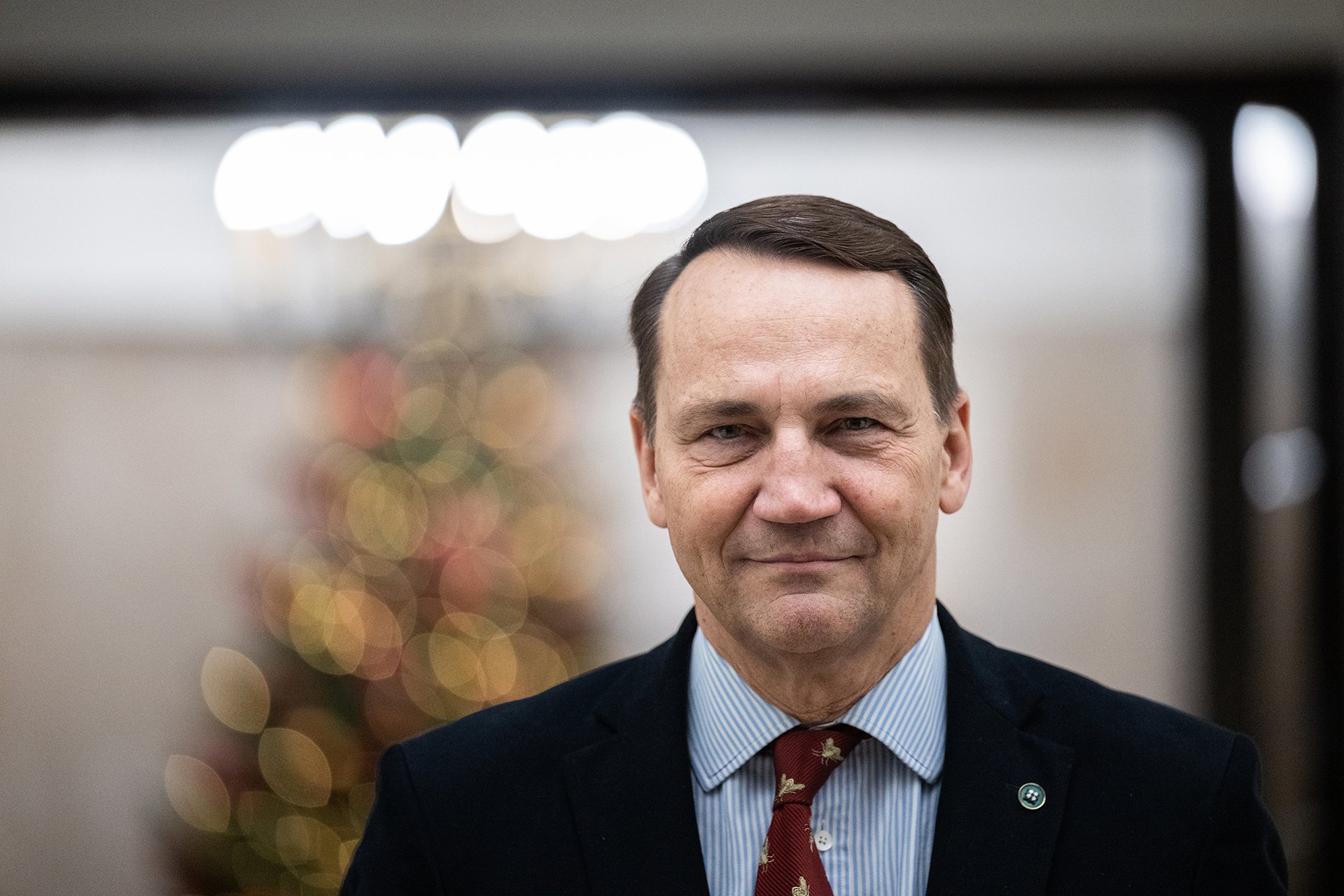Security clearance finished, forget it
Jitka Šmídová (28) hasn't lost courage, even if the powerful people she annoyed are slowly making themselves known. The buzz has to do with an employee of the Czech National Security Bureau (NBÚ) who refused to grant security clearance to Deputy Police Chief Václav Jakubík.

Jitka Šmídová (28) hasn't lost courage, even if the powerful people she annoyed are slowly making themselves known. The buzz has to do with an employee of the Czech National Security Bureau (NBÚ) who refused to grant security clearance to Deputy Police Chief Václav Jakubík. When her superiors changed the verdict afterwards with lightning speed, she spread the word about the threat of political abuse of security clearances in public in a recent television interview. Retaliation was immediate: first the sack and then a cold shower to top it off. A message made its way from the Supreme Court, where Miss Šmídová had gained a post in an open competition for the position of assistant, that because of her rebellion in the Jakubík case she would not get the post. What comes next nobody knows. Nevertheless, the fact that such practices are arousing serious concerns about the Supreme Court's independence has already been admitted even by the court's presiding judge Eliška Wagnerová.
Lord Robertson is worried
Jakubík's „final“ security clearance, granting him access to classified information, was signed by the bureau's director Tomas Kadlec, head of personnel screenings Monika Veselá and department head Jana Ermlová. All three violated the secret internal guidelines that they themselves had issued. Bureau documents with very break-neck names such as „Circumstances characteristic for the occurrence of security risks“ and „Guidelines for the evaluation and determination of the capability of accessing classified information“ tell what security risks are decisive for not granting a security clearance. Everything is nicely sub-divided into points A to M. Three of these point apply especially to Jakubík: „business activity that for various reasons might be untrustworthy“, „contacts to members of the Czechoslovak pre-November services“ and „repeated violations of work duties“.
During the 1990s the police deputy did business with a member of the secret police who during the period of „normalization“ was installed as a spy against NATO countries. In addition, Mr. Jakubík over the past five years with the police force has twice received disciplinary action (last year for example, for his shocking attempt in using a personal visit and threats to persuade the owner of a parcel of land in Hranice to sell her land to city hall for the construction of Philips' factory). Face to face with these facts, Jitka Šmídová decided to stick to the director's written instructions and after three months of detailed work declared the deputy to be an unreliable person who cannot be given clearance for contact with sensitive data and state secrets. Two days later, however, her superiors changed the verdict, striking out three pages of reservations against Jakubík from the report (disciplinary action, the fact that he owns three properties and three cars, that he was in the communist party during the years 1976 - 1989, that he worked fifteen years as a communist prison officer, that his business partner spied against NATO, and so forth). It's already clear from the described compendium that the „Šmídová case“ is nowhere near a dispute between an unappreciated clerk and her benevolent bosses. Security clearances are deadly serious affairs, one of the prime conditions for our country to be able to function in the North Atlantic Alliance (see inset). NATO Secretary General George Robertson for instance made inquiries into the circumstances surrounding the positive pronouncement of Jakubík's clearance to Alexandr Vondra, the government's envoy for organizing the NATO summit in Prague this autumn. Not as if Jakubík were in any way significant. But granting clearance to this bureaucrat with a bad reputation, who for reasons unknown is tenaciously protected by people from the highest offices, including Interior Minister Gross, has become an illustration of how the threat of security risks is treated in this country and with what anxiety our allies view them.


Call Kačer
„We don't comment on security clearances,“ says bureau press spokesperson Alena Čechová decisively to a question regarding the guidelines' validity. By the way, director Kadlec issued in mid-March - after the television appearance of Jitka Šmídová - a written and secret directive (directive number seven), whereby bureau employees are not permitted to complain about possible violations of the law at the bureau anywhere else but at the bureau, either in the legal department or directly to him. This directive was signed by most of the employees - who also agree with Kadlec's guidelines that criminal complaints may not be filed against the bureau's actions.
The state of affairs at the bureau and with security clearances also tells another story. A year and a half ago Evžen Šírek, head of the Service for Exposing Corruption, was not granted security clearance (and therefore had to resign from his position). At the same time his offense was much smaller than Jakubík's: he had received one disciplinary action for a suspicion, never proved, that he had connected to a work computer from home using an incorrect procedure. Commentary from the press and from independent experts at the same time regarded his „guilt“ to be in the uncompromising investigation of corruption of politicians, including the suspicion of a criminal act of one of the highest bosses of the National Security Bureau, Martin Hejl. Hospodářské Noviny learned that Mr. Šírek was not granted security clearance by bureau employee Kamil Kačer. This same man, however, granted clearance with no problem whatsoever to the prime minister's advisor Karel Heřman, one time Secretary of the Communist Party for Prague 4, Chairman of the Socialist Youth Organization for Prague 7 and doctor of communist political sciences. Last year Kačer left the NBÚ and in the summer founded a private company called CDP Consulting, which advises applicants for security clearance on „how to safeguard classified facts“. Bureau employees are convinced that, thanks to its contacts, the firm helps other companies get security clearance, for it offers its services in the official NBÚ Bulletin and on a sign at the entrance to the bureau. Why such helpfulness? Is it perhaps compensation for proven services? No one can find out because Kamil Kačer himself refuses to speak about the matter, as do NBÚ representatives.
I ask for nothing
As Robertson's question mentioned before shows, security clearances are a serious business. The problem however is that opposition politicians are not interested at all in the facts and indications, or even in the fate of Jitka Šmídová for that matter. And former NBÚ employees point out that while corruption may lurk behind the granting of clearance to individuals, companies and state institutions, turning to political representatives is futile. „Miss Šmídová's approach was rather non-standard. She went right to the press, even though she could have filed a complaint, say, to constitutional officials,“ says Petr Nečas, head of the committee for defense and security, in explaining why he wasn't „unseated“ by the revelations of the NBÚ employee.
Miss Šmídová on the contrary explains why she didn't just quietly pursue politicians, „I knew of the fate of similar complaints from my colleagues. No one dealt with them.“ For instance, former NBÚ member Rudolf Přibil wrote last spring directly to Kadlec's boss, Prime Minister Miloš Zeman, about how sloppily the screenings were handled for security clearance of computer technicians at state offices. Also writing to the Prime Minister were Tomáš Píša and Ondřej Karas, also former NBÚ employees who drew attention to the suspicious security clearances given to companies. Zeman didn't answer anyone. Nečas himself got hold of the documents from Píša last May. „I don't remember,“ says the head of the defense committee. „Maybe there was no proof.“
But the unbelievable mark in the history of security clearances thus far is the fate of Jitka Šmídová. She had to resign from the NBÚ as of March fifteenth. She didn't mind because in February she had gained a post in an open competition for the position of assistant to Supreme Court Judge Blanka Roušalová. Last week however she informed Jitka Šmídová not to count on the new job. Mrs. Roušalová in explaining her decision says, „Ultimately I didn't accept her because I didn't like the way she had acted. She was not loyal enough to the bureau.“ But in that case it surely had to do with loyalty to the law, and that should be decisive - especially for a member of the Supreme Court. „Well, I quite believe that Miss Šmídová is in the right,“ the judge concludes, „but then again I have the right to choose.“
Supreme Court Presiding Judge (up until last Friday) Eliška Wagnerová is evidently nervous about Šmídová's fate. „I know we ought to respect such people,“ she says. „Maybe this case can cast doubts on the trust in the Supreme Court's independence. But I can't meddle in an independent judge's decision. We'll see what can be done. We'll see.“
„I stand by what I've done,“ says Jitka Šmídová about the scandal. „And I'm not going to ask anyone for anything.“ Last week she started working at a small law firm in central Prague.
Against espionage and crime The National Security Bureau grants security clearance to those citizens who may find out the details about the Alliance's top secret military operations, who may know the plans of the most advanced weaponry, who may be given confidential information, say, on the Iraqi army or the spy satellite system. What is fundamental is that such a person not divulge information to an enemy or to anyone who is likely to divulge it to an enemy. A state that cannot manage to convince the allies that its security clearances are reliable receives less information. The Americans, for example, are now evaluating whether they will sign the Atomal treaty with us, which would allow us to obtain information on nuclear weapons. Police are also screened to see whether they have contacts to criminals who would divulge a police action, screenings are performed on state officials who know information about mobilization reserves, etc. Without a certificate from the NBÚ no significant state office for example can function. The NBÚ gives stamps showing that the ministries' computers are protected against possible theft of classified information. For example it is not possible to deal in weapons or advanced technology without the NBÚ stamp „company cleared“.
They're the ones who have to be afraid, says Jitka Šmídová After finishing school you became an investigator. That's not the usual dream of law graduates.
I quite enjoyed criminal law, I had the impression that as an investigator I would be able to push for a certain amount of justice. After two years I felt that it's sort of tedious work, that it has nothing more to give me professionally, and so I stopped. Why the NBÚ of all places?
I saw an advertisement. I wanted to apply to the legal section but it was already occupied. They offered me a job in personnel clearances. They said that once a position became available I would be transferred to the legal department. You screened Jakubík for three months. Did anyone interfere in your work?
Only routinely. But when I submitted my decision in December my superiors crossed out a series of passages dealing with Mr. Jakubík's risk statements, and they wanted me to rewrite it and to grant clearance to Jakubík. That I refused to do, so they did it themselves. What happened next?
Nobody threatened me, nobody discriminated against me. Though lots of people at the bureau asked me if it was worth it. They called me an anarchist or a lunatic. I think they're the ones who are anarchists and lunatics. They don't respect the law and the rules. Aren't you afraid of revenge from a powerful boss whom you actually accuse of abusing his authority?
No. He's the one who should be afraid. He behaves immorally and perhaps even illegally.
Pokud jste v článku našli chybu, napište nám prosím na [email protected].










